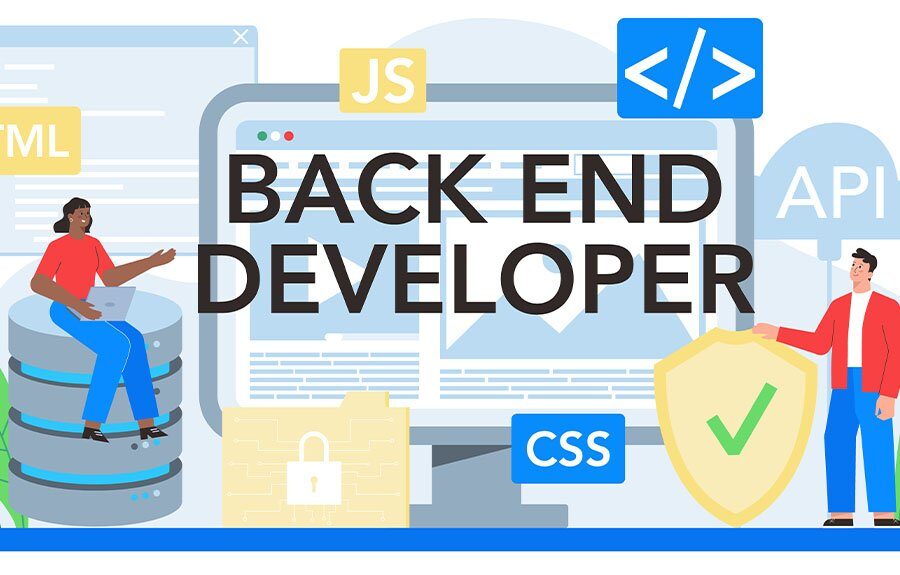In the world of web development, back-end development is a crucial yet often misunderstood aspect. While front-end development focuses on creating the visible parts of a website, back-end development deals with the server-side functionality that powers those features. This article demystifies back-end development, offering insights into what you need to know to succeed in this essential area of computer programming.

Understanding Back-End Development
Back-end development involves working with the server, database, and application logic that power a website or web application. It’s the behind-the-scenes work that ensures front-end features run smoothly. This field requires a strong grasp of various programming languages, frameworks, and databases. It’s not just about writing code but also about understanding how to manage and manipulate data efficiently.
Key Components of Back-End Development
- Programming Languages: To excel in back-end development, you must be proficient in languages like Python, Java, Ruby, and PHP. These languages help you build the server-side logic and interact with databases. Online coding tutorials and programming lessons can provide foundational knowledge in these languages, while coding workshops offer practical experience.
- Databases: Databases are essential for storing and retrieving data. Familiarity with SQL databases like MySQL and PostgreSQL, as well as NoSQL databases like MongoDB, is crucial. Understanding data structures and how to query databases efficiently is a key skill for back-end developers.
- Server Management: Back-end development involves configuring and managing servers. Knowledge of server management tools and platforms, such as Docker and Kubernetes, is beneficial. Learning how to deploy and maintain servers ensures that your applications run smoothly and securely.
- APIs: Application Programming Interfaces (APIs) are vital for communication between different software components. Understanding how to create and consume APIs is essential for integrating various services and building scalable applications.
The Role of Coding Education and Practical Experience
To succeed in back-end development, you need a combination of theoretical knowledge and practical experience. Coding education provides a strong foundation in programming concepts, while hands-on experience through coding exercises and programming projects helps you apply what you’ve learned. Engaging in coding challenges and participating in coding workshops can further enhance your skills and prepare you for real-world scenarios.
The Importance of Full-Stack Development
While back-end development is critical, understanding front-end development can give you a significant advantage. Full-stack development encompasses both front-end and back-end skills, allowing you to build comprehensive and well-rounded applications. Mastering both areas can make you a more versatile developer and open up more opportunities in the field of software engineering.
Building a Successful Career in Back-End Development
- Continuous Learning: The tech industry is constantly evolving, and staying updated with the latest trends and technologies is crucial. Engaging in ongoing code learning through online resources, coding challenges, and advanced programming lessons helps you keep your skills sharp.
- Networking: Connect with other developers and industry professionals through online forums, social media, and local meetups. Networking can provide valuable insights, opportunities, and support throughout your career.
- Portfolio Development: Building a portfolio of programming projects demonstrates your skills and experience to potential employers. Include a variety of projects that showcase your ability to handle different aspects of back-end development, from server management to API integration.
- Certifications: Earning certifications in relevant technologies and methodologies can validate your skills and enhance your credibility. Look for certifications in areas such as database management, server-side languages, and cloud platforms.

Back-end development is a complex but rewarding field that requires a solid understanding of various programming languages, databases, and server management. By engaging in coding education, practical coding exercises, and participating in programming projects, you can build a strong foundation for success. Understanding the interplay between back-end and front-end development and pursuing full-stack development can further enhance your career prospects. With continuous learning and practical experience, you’ll be well-equipped to thrive in the dynamic world of back-end development.




